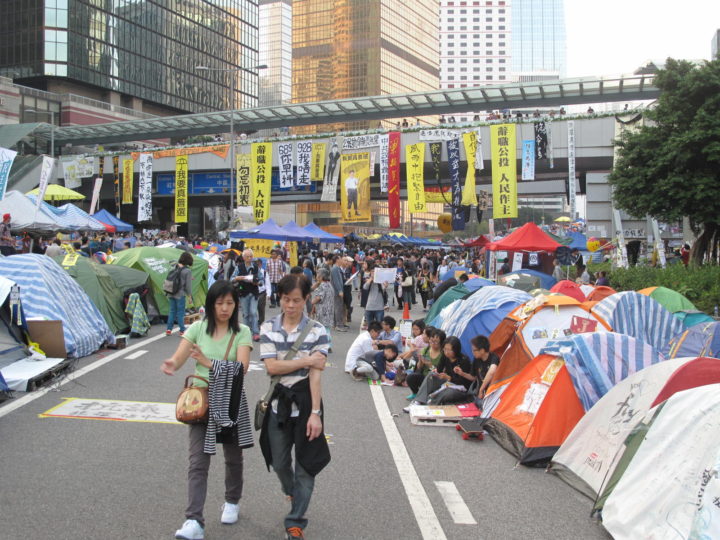Talk of an independent Hong Kong is usually done in the same manner as talking… what if we won the Mark Six Lottery… simply a topic for an idle moment when drinks have flushed the system in the after-work hours, well, until these past weeks that is.
This idea did not exist until very recently in Hong Kong, frankly it still is a laughable notion and not a serious one, but, on top of some more radical and limited interest in the possibility it is suddenly in the news owing to some of the territories youth unequivocally espousing that future, as idealist youth will, about anything – good on em.
The onset of the Legislative Council elections (Legco) for September 2016, has fired up a number of youthful ‘more-autonomy’ advocates and this has been highlighted by the ever-ready press as proposing independence as against said legitimate degree of autonomy and this red flag to the bull of the central authorities in Beijing has had its repercussions. It has jounced up the proposal beyond anyone’s expectations, even those beset with the notion, despite their minority status.
No one in their right mind envisages an independent Hong Kong, not after all the brouhaha of China retaking its due land mass here so the issue becoming the talk of the day is confounding. Now, candidates for the Legco elections are being hounded by the local government to sign additional and unnecessary documents affirming the intending candidate recognises that Hong Kong is an integral part of China, and whether that affirmation is acceptable to the nominations office is left to the particular case officer to determine.
This is causing chaos in Hong Kong, the very state of affairs Beijing is most wary of. Talk about let sleeping dogs lie? Well this dog is baying for attention both domestic and internationally with the banning of philosophy student Edward Leung Tin-kei, as the human focal point in the matter.
Over recent days Hong Kong’s Electoral Affairs Commission has banned six candidates from standing for Legco, because of their pro-independence views it is said. The rising political tension threatens the needed political stability – after the lack of it following the pro-democracy Occupy protests – when the new chief executive comes into office in 2017.
Edward Leung’s disqualification was announced August 2 and ignored that he stood in a district by-election in February and has pledged not to push for independence if elected, even if he has been an advocate of the independent line in the past.
The disqualification has hit the headlines in the city, and re-charged segments of the younger generation rallying around the notion, however outlandish it is, foreseeing an independent Hong Kong.
For the pro-Beijing political groupings Leung’s grassroots support has them gasping for political air and they can only gurgle the more in defense of policies that the central authorities must put in place to assure Hong Kong is kept within the bounds of China’s national intent so they can only see the independence moves as further proof that its supporters are dangerous separatists that need to be squashed flat.
The quip that chief executive CY Leung is “the father of Hong Kong independence,” makes sense given his gaffs in the way he has dealt with events such as the highly successful Occupy Movement – from the point of view of politicising Hong Kong’s youth and in fact the entire populace.
Also by way of what took place when Edward Leung first came to prominence as the face of localist group Hong Kong Indigenous, which helped organise the protests against the burden of mainland Chinese shoppers at border towns last year – however poorly thought out that campaign might have been and which showed Hongkongers in very poor light. Protesters said crowds of shoppers from the mainland were emptying stores of basic goods such as infant formula and bringing neighborhoods to a standstill. But Hong Kong is a city of and for trade…
Leung was also arrested and charged with rioting following the Night of the Fishballs during the pre-Lunar New Year celebrations which was an extraordinarily silly time to launch street cleaning operations by government that brought out seriously bad elements that mixed with more innocent youth on the streets of Mongkok protesting over the right of street hawkers to sell local snacks – the famous fishballs – and which turned into a violent confrontation between protesters and police.
With the sudden decision of Hong Kong’s electoral commission to stipulate that candidates standing for the legislative elections must sign a form pledging acceptance of three articles in the city’s Basic Law, each reinforcing that Hong Kong is a part of China, the scene was set to provoke what has been provoked. The result is a mess, as stated by Wilson Leung, a lawyer and convener of the pro-democracy Progressive Lawyers Group who was quoted in the media saying “The returning officers are supposed to be civil servants who check your eligibility and be politically neutral,” but is that what Hong Kong people want, rubber stamp officialdom?
With direct participation in affairs and not simply-minded democratic reactionism of the formal kind this matter would not have received the attention it didn’t deserve. Civil servants should not be passive but should be actively neutral in that they do a proper administrative job and in this case that means to make decisions as to eligibility. From the system’s point of view the banning was correct; from the youth’s point of view it was wrong – but the youth are human and the system is a mere machine. The issue continues to smoulder among Hong Kong citizens.






